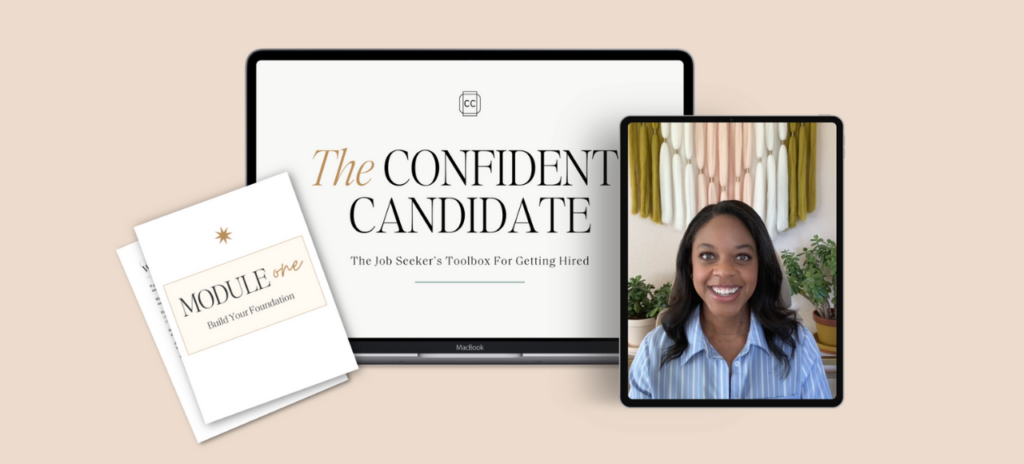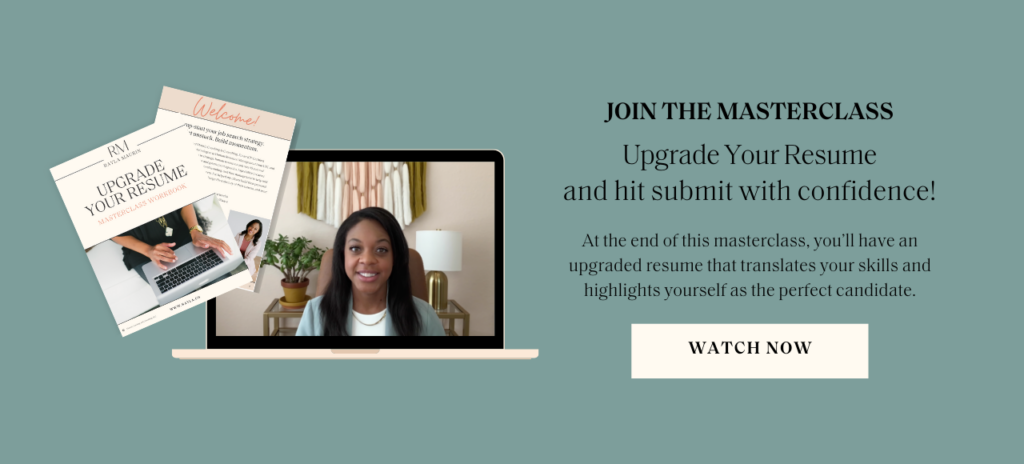You want me to ask my manager to delegate tasks because my workload is stacked to the ceiling
Couldn’t be me!
Ask my husband to change the battery in my car keys?
I’ve got this myself!
Ask a past colleague or LinkedIn connect for referrals?
Blasphemy.
Needless to stay, I don’t LOVE asking for help.
But when I set my sights on a six-figure salary, I realized I had to learn how to ask for referrals.
And um… it worked.
But I didn’t blindly email everyone I thought would have something nice to say about me. I also didn’t let them say whatever they wanted.
I guided them on the right things to say for my referral.
I understand that not everyone will want an overly stuffy or ChatGPT-inspired email template to send. That’s why I’m including examples of how to ask for referrals in 5 different tones of voice so you can choose your style!
But first: here are the 3 steps I took before reaching out.
How To Ask for a Job Referral That Matches Your Role
Did you know that at least 70% of jobs aren’t posted online?
Yep— as many as 80% of jobs are filled through personal and professional connections.
In other words, networking and knowing how to ask for a job referral is going to get you that job faster than the fancy things you put on your resume.
As long as you take the right steps:
Step 1: Narrow down your options.
Take out your Notes app or a pen and paper (my preference).
Before you start scribbling every name you’ve ever seen on LinkedIn, let’s be intentional.
The goal here isn’t to spam everyone in your network, but to focus on the people most likely to give you a strong and credible referral.
Start by asking yourself these questions:
- Who knows your work best? Think of managers, colleagues, mentors, or even clients who have seen your work.
- Who’s connected to the industry or company you’re targeting? A referral from someone in the same field carries more weight than an endorsement from someone outside the industry.
- How many referrals do I need? Start with 1-2 strong referrals.
- Do my referrals match the role? Different roles call for different strengths. For example, a former supervisor can highlight your organizational skills for a healthcare administrator position, while a colleague could speak to your passion for patient care for an advocacy role.
Once you have your list, prioritize it. The top names should be the people most likely to say yes and deliver a glowing referral. Quality > quantity here.
Step 2: Tell them what you need them to say.
People aren’t mind readers.
If you want someone to write a referral that actually helps, you need to guide them.
Be specific about the skills, qualities, or experiences that match the job you’re going after.
For example, if the job description highlights leadership, communication, and problem-solving, make sure your referrer knows those are the areas to spotlight. Say something like:
“If you could mention how I handled [specific project or task] or how I’m great at [specific skill], that would best align with what they’re looking for.”
This isn’t about scripting their message (nobody wants to sound robotic); it’s about giving them a cheat sheet so they can easily write your reference letter.
Trust me: the easier you make it for them, the more likely they are to write it (and the better their referral will be).
Free Download: LinkedIn Recommendation Examples
Step 3: Follow Up
This is where most people drop the ball. Don’t be “that person” who asks for a favor and then ghosts.
After they’ve agreed to refer you, follow up with a quick note or email. Say something like,
“Thanks so much for helping out! I’ll let you know how it goes.”
Once the referral is sent, update them on your progress—whether you landed an interview or got the job.
And don’t forget to thank them. A handwritten note or even a coffee gift card can go a long way in showing your appreciation. Bonus: They’ll be much more likely to help you out again in the future.
Relationships are everything, so it’s important to nurture them.
How To Ask for Referrals [Examples with Different Tones of Voice]
Here are five different email templates, each with a distinct tone of voice:
1. The Fun Email Sample
Subject: [Their Name]! Listen to this…
Hi, [Referrer’s Name]!
How are things going at [Company Name]? I’ve gotta say, I really miss [aspect of the job you enjoyed].
Anyway, I’m reaching out because I have a really exciting career opportunity I’m excited about and could really use your help. 😊
I’m applying for [specific job title] at [Company Name]! They’ve asked me to provide references, and I was hoping to include your name and contact info.
Would you be willing to write a quick referral for me? I’d love for you to highlight my [specific skills with a specific project or task, e.g., my Lightroom editing technique on the Manor Project] skills and how I’d fit into their team as a [character trait 1] and [character trait 2] [job], [e.g., detailed and awesome designer].
Thank you so much for your time—your support means a lot to me!
Let me know if you need any info or have questions!
You’re awesome,
[Your Name]
2. The Casual LinkedIn Referral Request
Hi [Referrer’s Name],
Hope you’re doing well! I’m reaching out because I’m in the middle of applying for a new role, and I could really use your help. 😊
I’m going after [specific job title] at [Company Name], and I think your endorsement could make a big impact.
Could you take a moment to write a quick referral for me?
Just sharing a bit about my [skills and qualities on specific project, e.g., leading the sales team during March Madness] would be fantastic.
Thanks so much for your time—your support means the world to me.
Let me know if you need more info!
Take it easy,
[Your Name]
3. The Professional Tone
Subject: [Your Name] Request for Professional Referral
Hi [Name]!
I hope you’re doing well and that [Company Name] is continuing to do amazing things.
I wanted to share some exciting news—I’ve applied for the [job title] at [Company] and have made it to the final interview [next week/next month].
They’ve asked me to provide a list of professional references, and I was hoping I could include your name and contact info.
Would you be willing to provide a brief referral highlighting my [specific skills and values, e.g., leadership and problem-solving]?
Please let me know if you’re okay with that or if you have any questions. Here’s a link to the job if you’d like to learn more: [Insert Link].
Thank you so much for your time and support!
Warm regards,
[Your Name]
4. The Empathetic Referral Email Retweet
Subject: Would you mind helping me out?
Hi [Referrer’s Name],
I hope you’re well. 😊 I’m reaching out because I’m on the lookout for a new career move and would love your support.
I’m applying for a role as [specific job title] at [Company Name], and I believe my [skills and values, e.g., creativity and teamwork] align well with what they’re looking for.
Would you be willing to write a quick referral for me? Just a few words about how I handled [specific project or task] or how I’m great at [specific skill]; that would best align with what they’re looking for.
Let me know if there’s anything you need from me.
Thank you so much for your time—your support would be incredibly meaningful to me!
Best,
[Your Name]
5. Empowering Tone
Subject: Your help could change my LIFE
Hi [Referrer’s Name],
I hope you’re doing great! I’m reaching out because I could really use your support.
I’m applying for a new role as [specific job title] at [Company Name], and I believe your endorsement could make a big impact on my application.
Could you share a few words about my [key skills demonstrated during a busy time, e.g., patience and eagerness to help during the pandemic]? I’m confident that my values and skills align well with what they’re looking for.
Let me know if there’s anything specific you need from me.
Thanks so much for considering this—your support could really help me take the next step in my career.
[Your Name]
Now what?
If you’ve made it this far, you know exactly how to ask for referrals.
But confidence is what turns that knowledge into action. The more prepared you feel, the easier it is to send the message, follow up, and land the interview.
That’s why I created the Confident Candidate Course! Learn how to create a standout resume, an effective LinkedIn presence, a confident mindset, and get ALL the tools you need to get the interviews, salary, and title you deserve.

FAQs
What if I don’t have any referrals?
If you don’t have any referrals, focus on building relationships.
Connect with former colleagues, mentors, or managers. Even if you don’t have direct referrals yet, networking on LinkedIn can help you land the right connections over time.
When to ask for references
Don’t wait until the last minute. Ask early (ideally when you start applying for jobs) so your references have time to prepare.
Most employers check references after the interview stage, so line them up beforehand.
Give your contacts a heads-up about the role, the company, and the skills you’d like highlighted. That way, when the call comes, they’re ready to speak confidently on your behalf!
Questions to ask for a job reference:
When someone agrees to vouch for you, give them a roadmap.
Ask: “Can you highlight the projects where I added the most value?” or “Would you be comfortable mentioning my leadership on [specific task]?”
You can also ask them to speak to your reliability, teamwork, or results. The clearer your request, the stronger and more relevant your reference will be.
How to ask someone to refer you for a (specific) job
Be clear, respectful, and make it easy for them to say yes. Start with context:
“I saw an opening for [Job Title] at [Company] and thought of you since you work there.”
Then make your ask direct but low-pressure:
“Would you feel comfortable referring me for the role? I can send my resume and a short blurb to make it easy.”


+ show Comments
- Hide Comments
add a comment